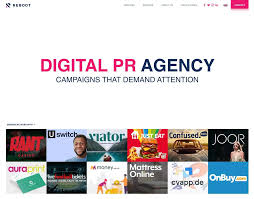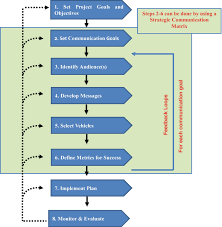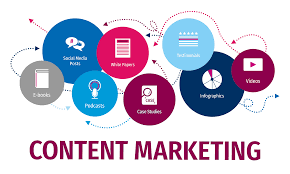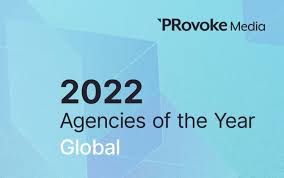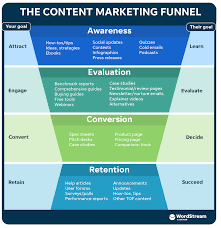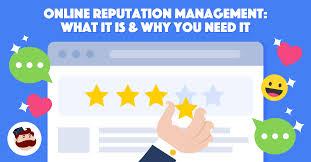Maximising Your Brand’s Potential with Professional Online PR Services
The Power of Online PR Services in Building Your Brand
In today’s digital age, the online presence of a business is more important than ever. With the rise of social media and digital marketing, businesses need to effectively manage their online reputation and visibility. This is where online PR services come into play.
Online PR services focus on managing a company’s reputation and communication strategies in the digital space. From creating engaging content to building relationships with influencers and journalists, online PR services help businesses establish a strong online presence and connect with their target audience.
Benefits of Online PR Services:
- Increased Visibility: Online PR services can help your business gain exposure on popular websites, social media platforms, and industry publications, reaching a wider audience.
- Enhanced Credibility: By securing positive media coverage and managing online reviews, online PR services can enhance your brand’s credibility and reputation.
- Crisis Management: In the event of a crisis or negative publicity, online PR services can help mitigate damage to your brand’s reputation and provide strategic communication solutions.
- SEO Benefits: Quality content created by online PR services can improve your website’s search engine rankings, driving more organic traffic to your site.
Whether you are a small startup or an established corporation, investing in online PR services can have a significant impact on your brand’s success. By leveraging the power of digital communication channels and strategic storytelling, you can effectively engage with your audience and build long-lasting relationships.
If you want to take your brand’s online presence to the next level, consider partnering with reputable online PR services that understand your industry and target market. With their expertise and knowledge, you can elevate your brand’s visibility, credibility, and overall success in the competitive digital landscape.
6 Essential Tips for Maximising Your Online PR Strategy
- Ensure your online PR content is tailored to your target audience.
- Utilize social media platforms to amplify the reach of your online PR campaigns.
- Monitor and respond to feedback and comments promptly to maintain a positive online reputation.
- Collaborate with influencers or bloggers to increase credibility and visibility for your brand.
- Optimize your press releases and articles with relevant keywords for better search engine visibility.
- Track metrics such as website traffic, engagement rates, and conversion rates to measure the effectiveness of your online PR efforts.
Ensure your online PR content is tailored to your target audience.
To maximise the effectiveness of your online PR efforts, it is crucial to ensure that your content is specifically tailored to resonate with your target audience. By understanding the preferences, interests, and needs of your audience, you can create compelling and relevant content that engages and captivates them. Personalising your online PR content not only helps in building stronger connections with your target demographic but also increases the likelihood of driving desired actions and conversions. Remember, a targeted approach in crafting online PR content can significantly enhance the impact and success of your digital communication strategies.
Utilize social media platforms to amplify the reach of your online PR campaigns.
To maximise the impact of your online PR campaigns, it is crucial to leverage social media platforms effectively. By utilising platforms such as Facebook, Twitter, Instagram, and LinkedIn, you can amplify the reach of your messaging and engage with a wider audience. Sharing press releases, articles, and positive reviews on social media not only increases visibility but also encourages interaction and feedback from followers. Incorporating social media into your online PR strategy can enhance brand awareness, drive website traffic, and foster meaningful connections with your target audience.
Monitor and respond to feedback and comments promptly to maintain a positive online reputation.
Monitoring and responding to feedback and comments promptly is crucial when it comes to maintaining a positive online reputation through PR services. By actively engaging with your audience and addressing their concerns or questions in a timely manner, you demonstrate that you value their feedback and are committed to providing excellent customer service. This proactive approach not only helps in building trust and loyalty with your audience but also allows you to manage any potential issues before they escalate, ultimately safeguarding your brand’s reputation in the digital space.
Collaborate with influencers or bloggers to increase credibility and visibility for your brand.
Collaborating with influencers or bloggers can be a powerful strategy to enhance the credibility and visibility of your brand in the online space. By partnering with individuals who have a strong following and influence within your target market, you can tap into their audience and leverage their authority to promote your brand authentically. Their endorsement can help build trust with potential customers and increase brand awareness, ultimately leading to greater visibility and credibility for your business in the digital realm.
Optimize your press releases and articles with relevant keywords for better search engine visibility.
To enhance your online PR services effectiveness, it is crucial to optimise your press releases and articles with relevant keywords. By incorporating strategic keywords that align with your target audience’s search queries, you can improve your search engine visibility and attract more organic traffic to your content. This keyword optimisation not only boosts your online presence but also helps potential customers discover your brand more easily, ultimately leading to increased brand awareness and engagement.
Track metrics such as website traffic, engagement rates, and conversion rates to measure the effectiveness of your online PR efforts.
To gauge the effectiveness of your online PR efforts, it is crucial to track key metrics such as website traffic, engagement rates, and conversion rates. Monitoring these metrics provides valuable insights into how your audience is interacting with your content and whether your online PR strategies are resonating with them. By analysing these data points, you can make informed decisions on refining your approach, identifying successful tactics, and ultimately improving the overall impact of your online PR campaigns.



